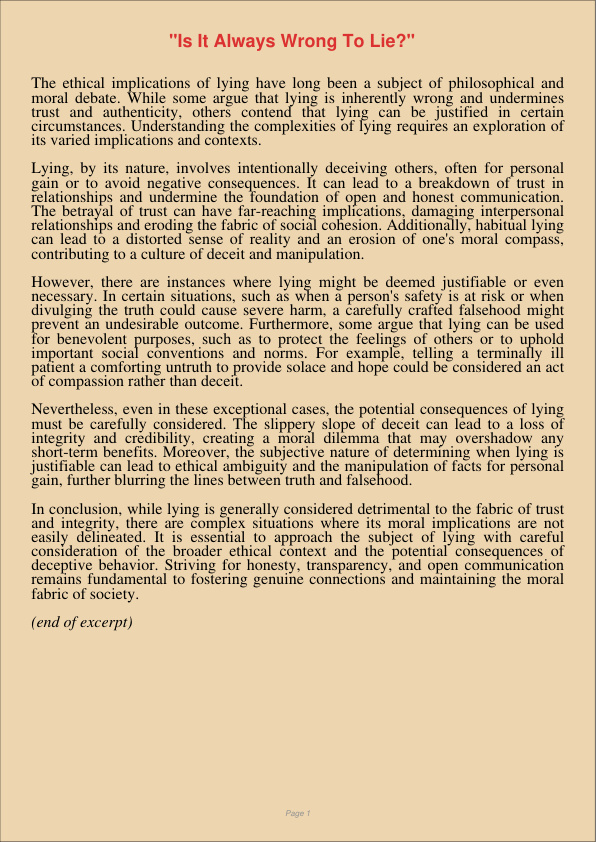Is It Always Wrong To Lie
Dec 31, 2023
lie
always wrong
Sociology
Engineering and Construction
The ethical implications of lying have long been a subject of philosophical and moral debate. While some argue that lying is inherently wrong and undermines trust and authenticity, others contend that lying can be justified in certain circumstances. Understanding the complexities of lying requires an exploration of its varied implications and contexts.
Lying, by its nature, involves intentionally deceiving others, often for personal gain or to avoid negative consequences. It can lead to a breakdown of trust in relationships and undermine the foundation of open and honest communication. The betrayal of trust can have far-reaching implications, damaging interpersonal relationships and eroding the fabric of social cohesion. Additionally, habitual lying can lead to a distorted sense of reality and an erosion of one’s moral compass, contributing to a culture of deceit and manipulation.
However, there are instances where lying might be deemed justifiable or even necessary. In certain situations, such as when a person’s safety is at risk or when divulging the truth could cause severe harm, a carefully crafted falsehood might prevent an undesirable outcome. Furthermore, some argue that lying can be used for benevolent purposes, such as to protect the feelings of others or to uphold important social conventions and norms. For example, telling a terminally ill patient a comforting untruth to provide solace and hope could be considered an act of compassion rather than deceit.
Nevertheless, even in these exceptional cases, the potential consequences of lying must be carefully considered. The slippery slope of deceit can lead to a loss of integrity and credibility, creating a moral dilemma that may overshadow any short-term benefits. Moreover, the subjective nature of determining when lying is justifiable can lead to ethical ambiguity and the manipulation of facts for personal gain, further blurring the lines between truth and falsehood.
In conclusion, while lying is generally considered detrimental to the fabric of trust and integrity, there are complex situations where its moral implications are not easily delineated. It is essential to approach the subject of lying with careful consideration of the broader ethical context and the potential consequences of deceptive behavior. Striving for honesty, transparency, and open communication remains fundamental to fostering genuine connections and maintaining the moral fabric of society.
